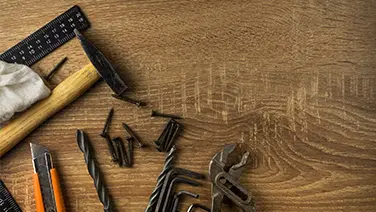DIY projects are rewarding, creative, and often cost-effective, but they’re not always easy. Whether you're building furniture, crafting home decor, or remodeling a room, it’s common to run into snags along the way.
Here are seven of the most common challenges DIYers face and practical tips for handling them.
1. Keeping Track of Materials and Tools
It’s all too easy to forget a key supply or misplace that one tool you need right now. Missing items can stall progress and create frustration.
Tip: Before you start, make a detailed list of everything you’ll need: Materials, tools, and safety gear. Organize your workspace so everything is easy to find.
2. Underestimating Time and Scope
Many DIY projects seem simple at first, but partway through you realize they’re bigger than expected.
Tip: Break your project into smaller steps and estimate time for each. Give yourself extra buffer time for unexpected delays or learning curves.
3. Losing Motivation Midway
Starting a project is exciting, but staying motivated can be tough, especially if things go off track or life gets busy.
Tip: Set small goals and celebrate milestones. Even snapping progress photos can help you stay engaged and see how far you’ve come.
4. Disorganized Notes and Plans
Ideas, sketches, and measurements can quickly get scattered across notebooks, apps, and scraps of paper.
Tip: Keep everything in one central place. Whether it’s a notebook, a planning app, or a folder on your computer, having one “home” for your project helps you stay focused.
5. Budget Overruns
It’s easy to underestimate costs, especially when you forget to factor in extras like tools, fasteners, or finishing touches.
Tip: Do some research and build a rough budget before you begin. Track your expenses as you go, and leave some wiggle room for surprise purchases.
6. Forgetting Where You Left Off
Taking breaks is natural, but coming back to a half-finished project can be confusing without good records.
Tip: Before stepping away, jot down a quick note about what’s been done and what’s next. It saves time and helps you restart with confidence.
7. Not Documenting the Process
You put in all that work, but once it’s finished, you have no record of how you got there or what you learned.
Tip: Snap photos during each stage, write a quick summary of your process, or even share the final result online. It’s a great way to reflect, improve, and inspire others.
Final Thoughts
Every DIYer faces challenges, but a little planning and organization go a long way.
With the right mindset and tools, you can keep your projects on track and enjoy the creative process even more.
